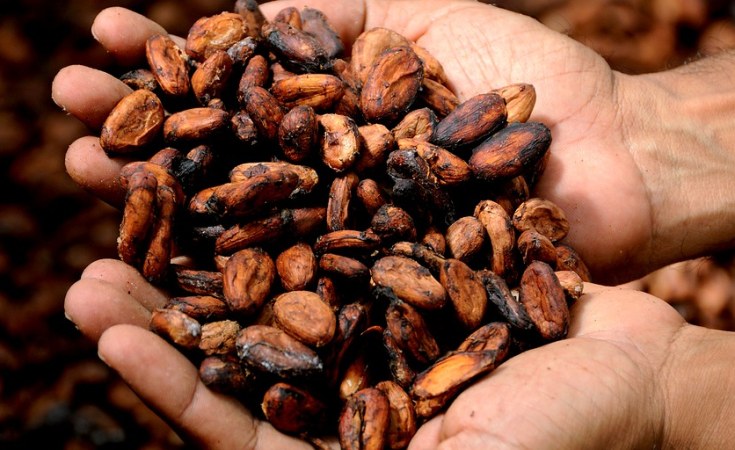Yaounde, Cameroon — Cameroon's anglophone rebels have torched truckloads of cocoa that were bound for French-speaking towns as farmers protest a ban of exports to Nigeria.
Cocoa farmers have blocked hundreds of tons of the beans from leaving their farms and are staging daily street action after the government cracked down on cocoa and other cash-crop smuggling by banning exports to neighboring Nigeria.
Cameroon's farmers say they can get nearly double the price for cocoa in Nigeria, where they don't face threats from separatists.
Joan Mary Becke, 27, is one of the cocoa farmers protesting the move this month in Mamfe, a town on Cameroon's border with Nigeria.
Speaking via a messaging app, she said they can earn about $2 per kilogram selling to Nigeria, nearly double compared to Cameroon, where anglophone rebels threaten their shipments.
"We should be able to decide where and when to sell our cocoa," she said. "The government of Cameroon has been unable to protect farmers from separatists who have prohibited the sale of cocoa in French-speaking regions. Should farmers and their families die of hunger when there is a ready Nigerian market for cocoa?"
Becke said the rebels this month torched several trucks transporting cocoa from Cameroon's southwest region to the coastal business hub of Douala.
Farmers told VOA the rebels torched at least six truckloads of cocoa in the past 10 days.
Cameroon government and military officials confirmed that rebels torched trucks hauling cocoa but would not say how many were destroyed.
Cocoa farmers have been holding daily street protests aimed at the export ban in southwestern villages and towns and say they will continue until the government lifts the ban.
On June 13, Cameroon announced a temporary ban on cocoa, cotton, and other cash crop exports to Nigeria to save the country from losing $165 million each year to smuggling.
The government says it dispatched several hundred police and customs officers to the border to stop illegal cocoa exports.
Mamfe Robert Ashu Tabechong, the mayor of Mamfe, said farmers are still able to sell cocoa to smugglers for export through the porous border to Nigeria.
"We cannot collect revenues. Without collecting revenues, we cannot develop our municipality," Tabechong said. "We have support from the forces of law and order [military] to enable us [to] combat the middlemen and secessionists transporting cocoa to Nigeria because Nigeria, lately, they have many factories that are transforming cocoa into chocolates and other things."
Tabechong said Cameroon should either lift the cocoa ban or at least allow farmers to sell some of the beans to Nigeria.
Cocoa farming is one of the main sources of livelihood in southwestern Cameroon. The Ministry of Trade says the region contributes about 60 percent of the 300,000 tons of cocoa grown in Cameroon each year.
Viang Mekala, the most senior government official in Manyu, the administrative unit where Mamfe is located, spoke to VOA while addressing protesting cocoa farmers Tuesday in Mamfe.
"When the hierarchy will see our report, they will know what to say, and the answer to give to the population," Mekala said.
Cameroon's government says illegal cocoa exports to Nigeria spiked after anglophone separatists launched a rebellion in 2017 to break away from the French-speaking majority. The rebels declared their own ban on the sale of cocoa to French-speaking towns.
Cameroon authorities say the military will protect farmers who sell their cocoa to the French-speaking regions. However, Cameroon's cocoa farmers cite this month's attacks on cocoa trucks and say they are not convinced.


